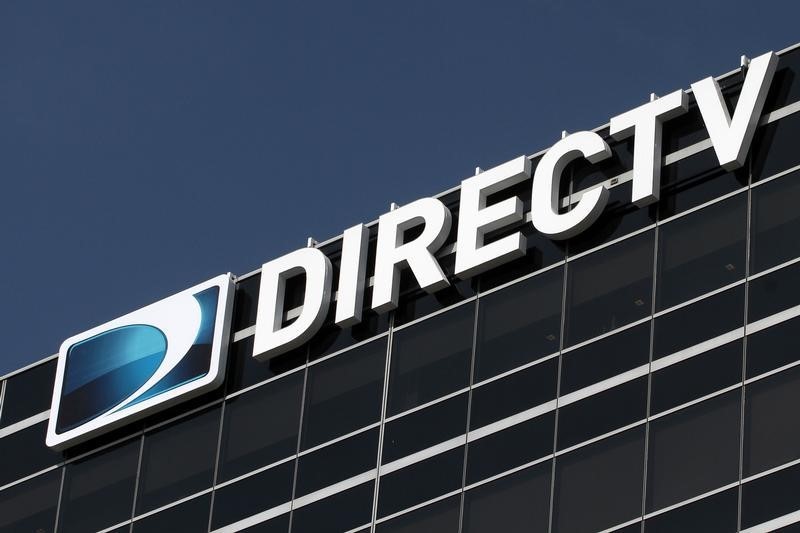By Alina Selyukh and Diane Bartz
WASHINGTON (Reuters) - AT&T Inc's (N:T) proposed $48.5 billion acquisition of DirecTV (O:DTV) is expected to get U.S. regulatory approval as soon as next week, according to people familiar with the matter, a decision that will combine the country's No. 2 wireless carrier with the largest satellite-TV provider.
The Department of Justice, which assesses whether deals violate antitrust law, has completed its review of the merger and is waiting on the Federal Communications Commission to wrap up its own, according to three people familiar with the matter.
The FCC, which reviews if deals are in public interest, is poised to approve the deal with conditions as early as next week, according to three other people familiar with the matter.
All the sources asked not to be named because they were not authorized to speak with the media. An AT&T spokeswoman and FCC spokesman declined comment. Justice Department representatives were not immediately available for comment.
AT&T's merger with DirecTV, announced in May 2014, would create the country's largest pay-TV company, giving DirecTV a broadband product and AT&T new avenues of growth beyond the maturing and increasingly competitive wireless service.
The deal has been expected to pass regulatory muster in contrast with the rival mega-merger between cable and Internet providers Comcast Corp (O:CMCSA) and Time Warner Cable Inc (N:TWC), which was rejected in April largely over the combined companies' reach into the broadband market.
The FCC and AT&T have been in negotiations over conditions for the merger for several weeks, the people said, adding that none of the conditions are controversial enough to break the deal.
Those conditions are expected to include assurances that both middle-class and low-income Americans have access to affordable high-speed Internet, including an offering of broadband subscriptions as a standalone service without a TV bundle, according to two of the people.
AT&T has earlier committed to expand access to broadband service in rural areas and to offer standalone Internet service at speeds of at least 6 Megabits per second to ensure consumers can access rival video services online, such as Netflix (NASDAQ:NFLX).
FCC officials are also considering ways to ensure that the conditions are properly enforced in the future, possibly through a third-party monitor, according to the two sources.

The FCC is also weighing how to ensure the merged companies abide by the so-called net neutrality rules, which regulate how Internet service providers manage traffic on their networks.
AT&T has promised to abide by net neutrality principles such as no-blocking of traffic, but is challenging in court the FCC's newest net neutrality regulations that have expanded the agency's authority over various deals between Internet providers and content companies.
FCC reviewers are weighing what net neutrality-related conditions to apply to the merger and how to address the possibility that the court throws out the latest rules, the two sources said.